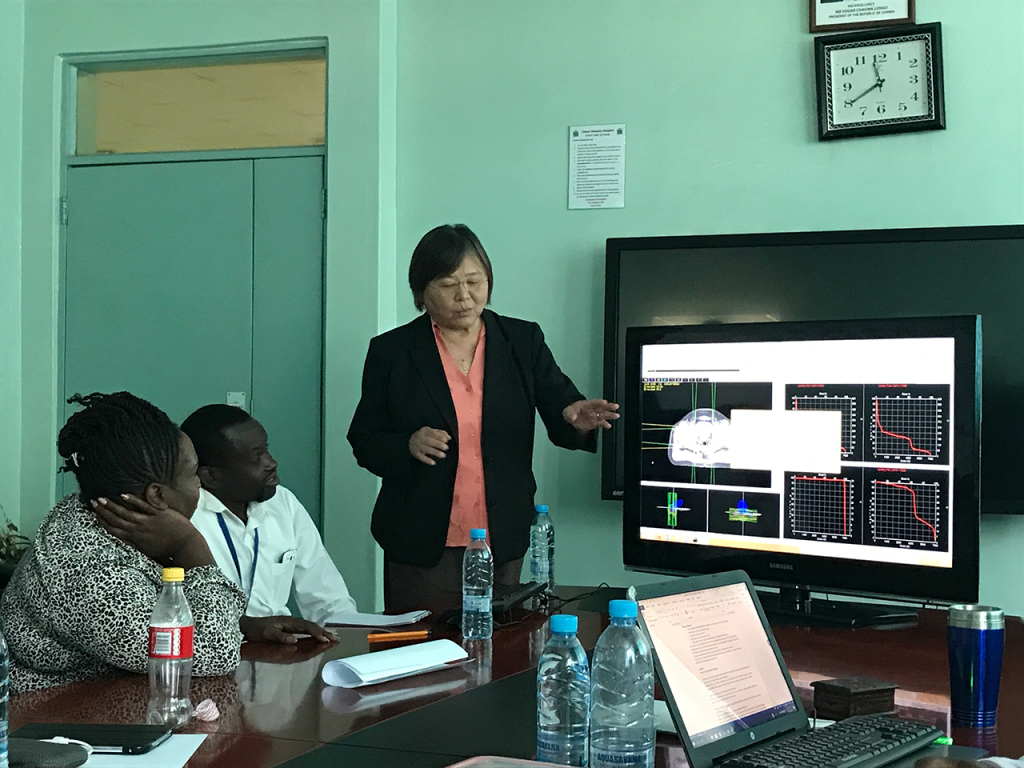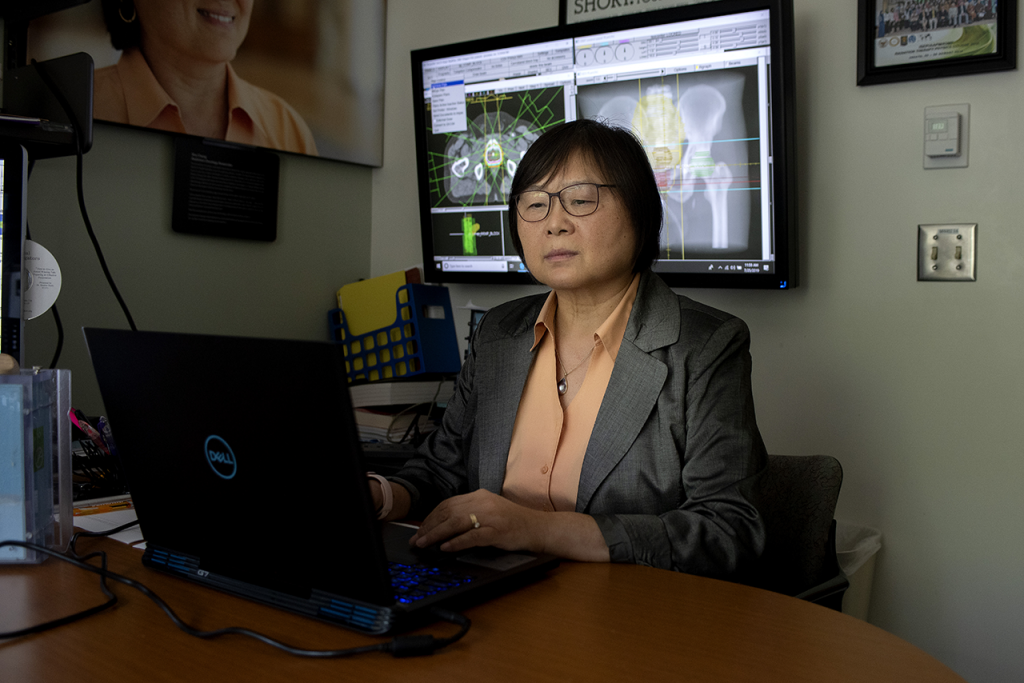Chang sees EmpowerRT’s novel adaptation of technology that was previously developed and clinically used at UNC hospital as a potential equalizer.
“Our mission is to help people in developing countries improve cancer therapy without spending millions of dollars they don’t have,” says Chang. “Our four-prong solution – hardware, software, service and training – can help cancer clinics in low-to-middle-income countries save up to three million dollars when our solution is brought to their clinic.”
At Zambia Cancer Disease Hospital, Chang and her team focused on proving that the EmpowerRT solution can maximize the value of radiation therapy equipment that already exists in clinics to deliver affordable, high-quality treatment with low toxicity.
“With global cancer care, there are many challenges including availability, cost and barriers to adoption,” adds Chang. “The Empower RT solution aims to do more with less: do more with what is already available in the low-resource clinics, do more with the knowledge and technology we have already and do it simply.”
During the test phase in Zambia, Chang and her team faced many hurdles. Their learning curve involved adjusting to a different work culture, while dealing with broken equipment and inexperienced hospital staff. They also had to contend with the country’s strained financial situation and schedule delays caused by extended government holidays. Chang quickly realized that her team would have to work through unanticipated twists outside their control.
“I am not going to lie. I felt completely hopeless many times,” says Chang. “But somehow, there is a force pushing me to put one foot in front of the other, and that pays off. We exceeded my expectations.”
The team’s persistence paid off. They installed software and hardware, conducted training on compensator-IMRT treatment planning, recyclable device fabrication and quality assurance to doctors, therapists and physicists to use EmpowerRT’s solution safely in their clinic. The team also implemented a train-the-trainer program, proving how user friendly the software is.
Several innovation and entrepreneurship programs at UNC-Chapel Hill – including CUBE, Startup UNC, and KickStart Venture Services – worked with Chang and EmpowerRT throughout the venture’s evolution. Support from these programs arrived in many forms: entrepreneurship mentoring, grants and networking, to name a few.
With lessons learned during its time in Africa and through ongoing support from programs at Carolina, the team is working on a small business proposal to develop and bring more feasible and low-cost radiation therapy solutions to more low- and middle-income countries.
“You have to have strong partnerships. You have to have shared determination,” says Chang. “There’s no question we’re making an impact that profit-driven large companies are not. We are pioneering an innovative social enterprise pathway to reduce global cancer care disparity by maximizing the resource and knowledge already exist in the world.”


 | UNC-CH
| UNC-CH




